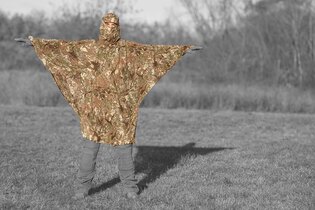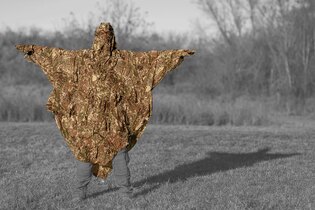Ghosthood: ponchos that protect against drones
The modern battlefield is undergoing rapid and hard-to-predict developments, and the current conflict in Ukraine has clearly presented military units with new challenges. One of these challenges is the mass deployment of drones – small unmanned aircraft whose main tasks include reconnaissance, information gathering, but also attacks. Therefore, the question of effective countermeasures comes to the fore. The German brand Ghosthood is developing an "anti-drone poncho" that makes detection by a thermal imaging camera as difficult as possible.
Who doesn't have drones is a loser?
Effective use of drones is becoming one of the key military capabilities. One could say that whoever does not use them in a modern conflict has a minimal chance of success. And those who do not have effective protection against drones also expose themselves to extreme danger. Drones are small, cheap and easy to deploy. Their technical development is progressing extremely fast, which of course also applies to resistance to jamming devices and means of electronic reconnaissance and warfare in general. Both sides of the conflict naturally strive for technical superiority over the opponent.
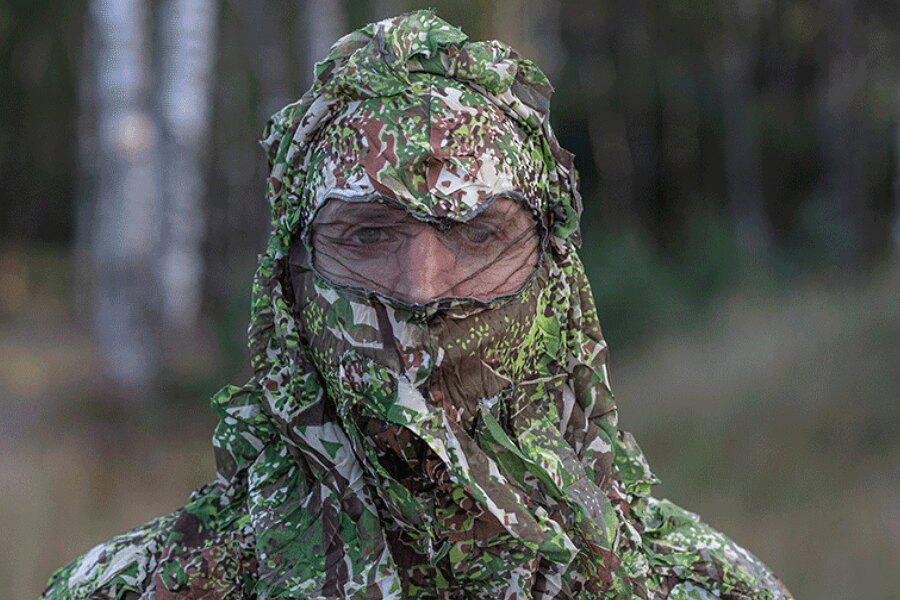
In modern conflict, anti-drone measures are becoming a necessity. Ghosthood anti-drone ponchos are an effective means of protecting an individual. Source: ghost-hood.com
The fact that drones have the ability to penetrate far inland or behind the front line also stems from this. As a result, there are no longer relatively safe zones for soldiers at a greater distance from the front, where they could restore their combat capability. The risk of drone attacks already remains constant with them.
In particular, Germany has also been dealing with the numerous occurrences of suspicious drones over strategic objects since the beginning of the conflict in Ukraine. The Bundeswehr is therefore currently focusing on the purchase of active and passive protection means. In addition to the investment in electronic warfare elements, the package of measures also includes the purchase of anti-drone suits. German soldiers stationed in Lithuania should be equipped with the first 1,100 units, and further orders are on the horizon.
Simple camouflage is no longer enough
The supply of anti-drone suits for the Bundeswehr was entrusted to Saro GmbH, which now supplies the Ukrainian army with camouflage suits and nets, among other things. A classic camouflage suit, which would allow a soldier to optically break up the silhouette and visually blend in with the surrounding environment, is no longer enough nowadays. That's why the company also offers anti-drone ponchos under the Ghosthood brand, "hood of the ghosts".
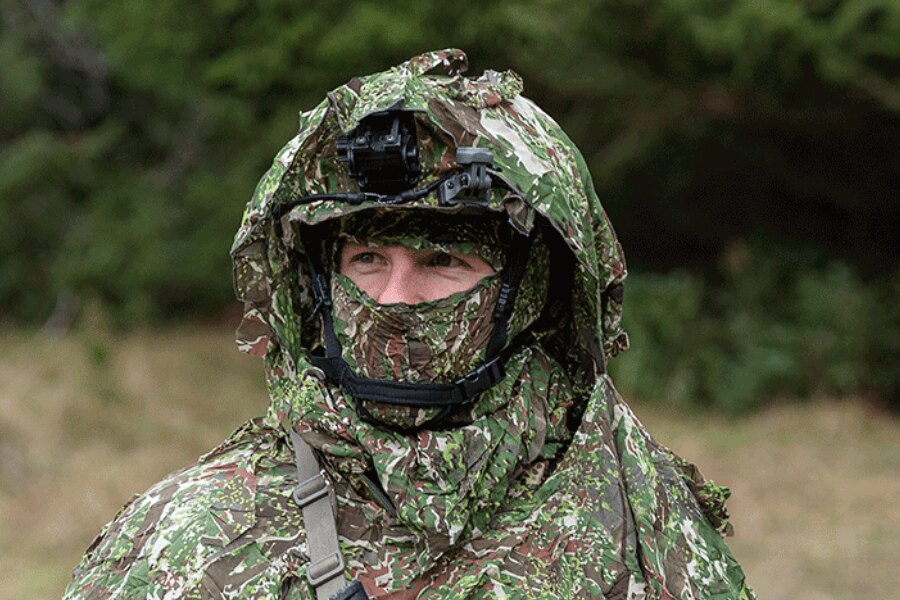
The Ghosthood anti-drone poncho has a special layer of thermal camouflage that makes it difficult to detect by thermal imaging. It has the nickname "fairy dust". Source: ghost-hood.com
Ghosthood: synonymous with modern camouflage
The Ghosthood brand focuses on camouflage using the most modern technologies. Its executive director and former paratrooper Matthias Bürgin has been literally living with the development of camouflage since he was ten years old, when he created his own camouflage pattern for aircraft models, because he found the NATO patterns too outdated and ineffective at the time. Later, he even made his own camouflage suit to gain an edge in the game of hide and seek. He also devoted himself to the development and testing of camouflage patterns during his military career. The interesting thing is that, as one of the few, he did not create patterns on a computer, but through detailed observation of nature.
He is also the same person who created the CONCAMO (Confusion Camouflage) camouflage system, based on the psychology of perception, where the subconscious is overwhelmed by a chaotic illusion. And since CONCAMO and Ghosthood belong to the same company, the Ghosthood anti-drone poncho features this very pattern and its variants.
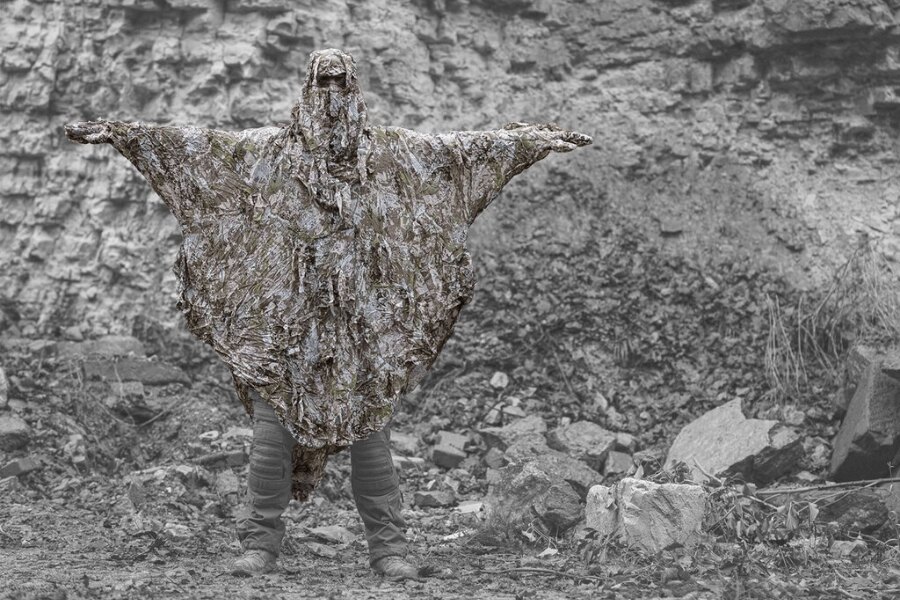
You will find variants of the CONCAMO pattern on Ghosthood camouflages. Source: ghost-hood.com
Invisible thanks to "fairy dust"
In addition to the optical camouflage layer, anti-drone ponchos also use a special layer for thermal camouflage, which prevents drones from being detected by a thermal imaging camera. This effect is achieved by special surface treatments of the material, thanks to which the material effectively absorbs body heat. What modifications and treatment of the material are involved? This is still a trade secret. However, the manufacturers found a magical nickname for them – "fairy dust".
The protective effect of this invisible mantle can be partially impaired by external influences such as temperature, pressure and air humidity, the position of the sun, soil temperature and the like.
The Bundeswehr is betting on the Multicover model, which weighs less than one kilogram and when folded, soldiers can use it as a pillow. The poncho can also be used as a shelter or camouflage shelter that protects against bad weather and deadly drone attacks.
Readers are further interested





































































































































